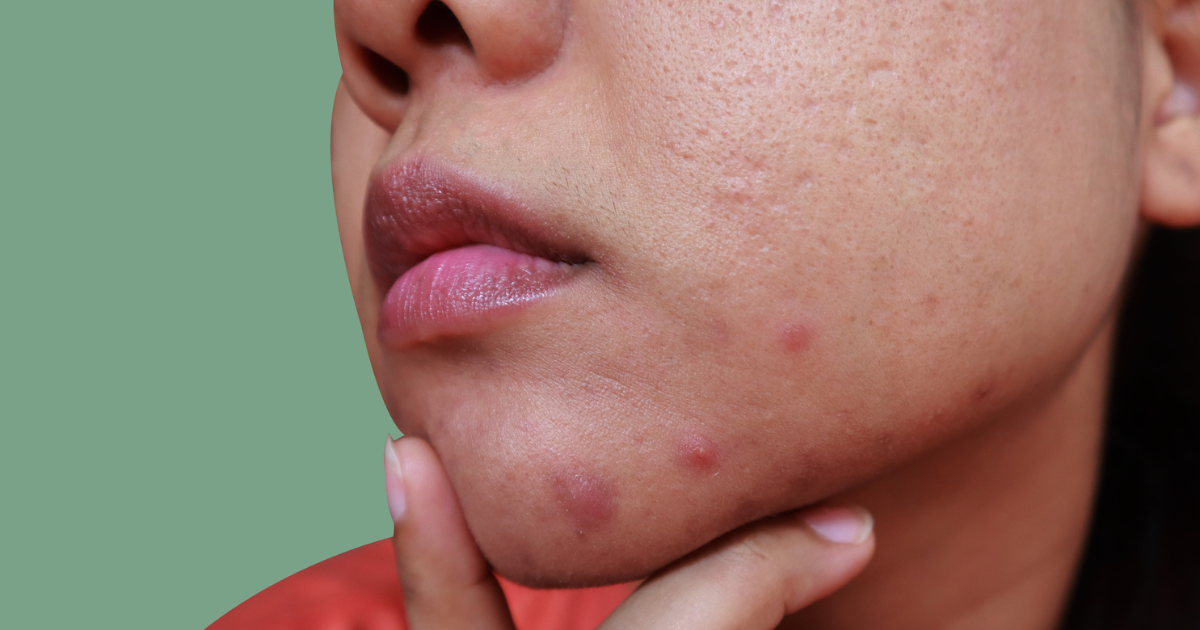You asked, we answered: Is there anything new to treat PCOS hormonal acne and hidradenitis suppurativa?

Question: Is there anything new to help women with PCOS who are experiencing nodule cystic acne and hidradenitis suppurativa stage 2 that doesn't include steroids?
Answered by Carly Jennings, MD, OB-GYN, and Matthew Stephany, MD, dermatologist:
Understanding hidradenitis suppurativa and polycystic ovary syndrome
Hidradenitis suppurativa, or HS, is a chronic inflammatory condition that causes painful skin lesions or lumps. The lesions can break open, causing abscesses and scarring – but the condition affects more than just your skin.
The complex disease frequently occurs with other conditions like polycystic ovary syndrome or PCOS. Around 9 out of every 100 people living with HS also have PCOS, and the odds of having PCOS are twice as high in women with HS. The exact cause of the disorders is unknown, but increased levels of sex hormones called androgens, inflammation, and genetics are contributing factors.
PCOS can be tricky to uncover because symptoms and experiences vary drastically between patients. If you have PCOS, you may have a combination of the following:
- An imbalance of sex hormones
- Cysts on the ovaries
- Irregular menstrual periods or no periods at all
- Acne
- Hair growth on the chin and upper lip
- Thinning hair or hair loss on the head
- Metabolism problems
- Insulin resistance and diabetes
These irregularities can affect your physical appearance, overall health and ability to get pregnant.
Exploring PCOS and HS treatment options
Treatment options for acne caused by PCOS and HS are still under review, but the conditions typically respond well to hormone-balancing therapies like:
- Weight loss – Maintaining a healthy weight is crucial to managing an array of PCOS symptoms, including unpredictable cycles. Weight loss of even 5% of your current body weight has been proven to help menstrual cycles return to normal.
- Regular exercise – Researchers continue exploring the direct impact of regular exercise on menstruation patterns, but it is believed to help regulate hormone cycles. That’s because regular exercise assists with insulin sensitivity and weight control.
- Eating a healthy diet – Eating a balanced diet is instrumental in maintaining a healthy weight. Each meal should contain lean proteins, nonstarchy vegetables, fruits and whole grains, and minimal saturated fat and sugar. In particular, food items with anti-inflammatory properties, like avocados, turmeric, ginger, olive oil and leafy greens, can improve your metabolism and ease symptoms of PCOS.
- Smoking cessation – Stopping smoking can help decrease your PCOS and HS symptoms, and reduce your risk of other diseases like cancer and heart disease.
- Birth control – If you are not actively trying to get pregnant and don’t have any contraindications with hormonal birth control, your doctor may recommend progesterone pills, medroxyprogesterone injections, an etonogestrel implant or a levonorgestrel intrauterine device.
- Spironolactone – Spironolactone is considered a potassium-sparing diuretic, which is designed to prevent low potassium levels. However, it’s not safe during pregnancy. There’s also limited data on the effects while breastfeeding, so it’s best to consult your doctor before using.
- Metformin – This first-line treatment for Type 2 diabetes can be helpful for PCOS patients with insulin resistance or prediabetes. It recently gained acceptance as a safe and effective option for pregnant and breastfeeding women with hormonal acne.
- Topical antibiotics – If you’re experiencing severe acne, your doctor may recommend a topical antibiotic like clindamycin. However, medications like this work best with benzoyl peroxide, which is not safe for pregnancy. Using a topical antibiotic for an extended period without benzoyl peroxide can make your acne more resistant to treatment.
- Oral antibiotics – Research shows the oral antibiotic tetracycline can improve mild to moderate HS symptoms by about 30%.
- Steroids – Steroids are typically reserved as a last resort for patients that do not respond well to other treatments.
As mentioned, many of the treatments above are not recommended for pregnant or breastfeeding women. If you are pregnant, nursing, or plan to become pregnant, you should talk to your doctor about the options that are right for you. For more information or to schedule an appointment, call 800.922.0000.




